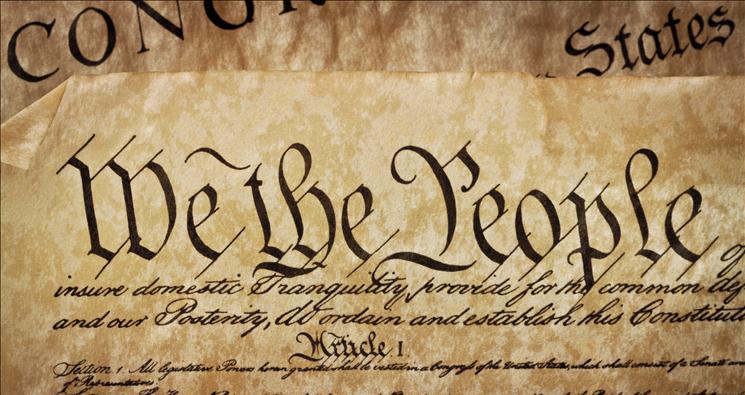Let the Banner Fly! Protecting the Free Speech Rights of Churches
Last month, we were contacted by a pastor in New York who wished to display a church’s banner over a city’s main street announcing a religious, community event to be held in a public park. The event, cosponsored with nine other local churches and ministries, and now in its third year, will include worship music, sermons, prayer, games, and a host of other activities. The event is free and open to the public and one need not be a member of any church or religious affiliation to attend.
When the pastor proposed his banner to the city’s public works department, which included the name of the event, “United, One Church, One Cross,” he was told the banner would not be permitted. According to a city policy regulating the display of banners over Main Street, “no commercial, religious or political advertisements will be allowed on banners.”
In an attempt to display something that would bring attention to the church’s event, the pastor proposed a number of other alternatives for the banner that didn’t contain the words “Church” or “Cross.” These too were rejected by the city. The pastor was told that because the event was a religious one, no banner could be displayed at all, no matter how it was worded.
That’s when then pastor got in touch with the ACLJ.
We wrote a letter to the city attorney explaining that the city’s banner regulations violated the Free Speech Clause of the First Amendment for two reasons: (1) they are unreasonable in light of the city’s purpose for allowing such banners in the first place (that is, to announce community events of interest to the general public) and (2) they constitute impermissible viewpoint discrimination based on religion. As we explained:
The City Banner Regulations allow certain groups to display banners containing any viewpoint those groups wish to communicate, except for commercial, political, or religious “advertisements.” Here, [the church] would like to do precisely what other local groups have done (like the Rotary Club and Jaycees), i.e., advertise for a local, community event that is open to the public, but it cannot do so because the event that the banner publicizes has been deemed by the City to be “religious.” Because this amounts to religious viewpoint discrimination, the restriction fails to pass constitutional muster.
Shortly after we sent the letter, the city contacted the pastor indicating that it was now willing to allow the church to put up a version of the banner that didn’t contain the words “Church” or “Cross.”
While we appreciated the city’s slight change of position, this was not the resolution we were hoping for -- nor was it a resolution consistent with what the First Amendment requires.
After sending a follow-up letter to the city attorney, stating that we could see no principled basis for “the City disallowing the banner that sets forth the name of the event the banner publicizes,” the city once again reached out to the pastor. This time, the city agreed to allow the church to display its banner complete with the words, “United, One Church, One Cross” -- in other words, without any censorship of any kind.
We are pleased that the city ultimately made the right decision in this situation. And we are pleased too that, instead of allowing it to be silenced by the city’s regulations, the pastor contacted us about the church’s right to free speech. It is not good enough simply to have First Amendment liberties; we must act on them and seek to vindicate them when necessary.
